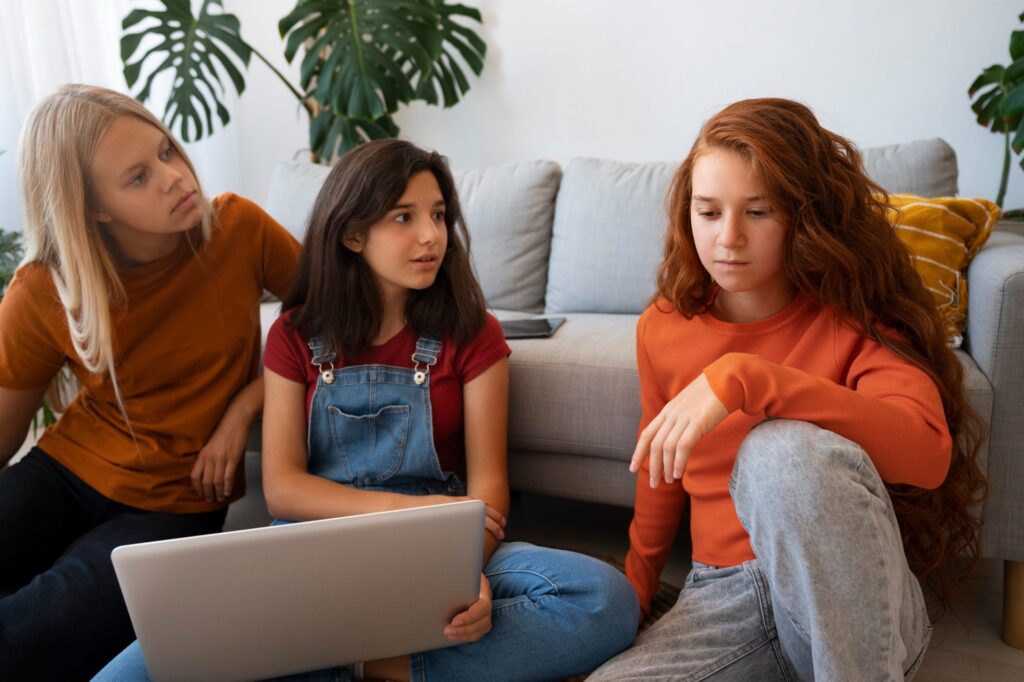Need Help?
Where to Start...
Join ATN - empowering trauma-informed families, educators and communities.
Parents:You Are Not Alone!
Are you parenting a child whose earlier life included abuse or neglect, or pain from medical procedures or undiagnosed illnesses? Do you suspect your child has attachment problems? Have you tried several different parenting techniques, consulted counselors or doctors and have a nagging suspicion that you’ve yet to find what’s really wrong? Or has your child has already received the diagnosis of RAD, PTSD, trauma, anxiety disorders or developmental trauma? The most important healing agent for your child is YOU! ATN is here to support you, help you find the resources in your area, and to connect you with other parents traveling this journey. Remember, you are not alone!
If you’re looking for a trauma-informed, attachment-focused therapist or other professional… start with ATN’s Resource Directory.
Not sure what to do next?
- Start by visiting our sections on understanding Attachment and Trauma to get a better foundation of the science and the theory behind trauma-based disorders, especially in children
- Visit the Treatment page to learn more about the common trauma-based disorders and evidence-informed treatment modalities.
- Join ATN — the VOICE for traumatized children and their families. Parents/caregivers and Educators join for free!
- Sign up for an ATN Online Support Group. (Support groups are exclusive to ATN members.)
- In crisis? Email or call us for more support.
"Our Voices" Blog: Touching Trauma at its Heart
Touching Trauma at Its Heart is a blog written by Attachment & Trauma Network’s voices: a collection of parents, professionals and volunteers who represent a variety of perspectives and experiences related to attachment issues and the effect of trauma on children and on families.
Unfortunately, many families with traumatized children feel isolated and without hope or solutions. Many, but not all, have received diagnoses of Reactive Attachment Disorder (“RAD”), Post Traumatic Stress Disorder (“PTSD”), anxiety or developmental trauma disorder and are given little understanding by those they approach for help. We have created Touching Trauma at Its Heart to support families by providing a window into the ATN community and the thousands of families struggling with these issues. We also hope to educate the media, clinicians and others about individual experiences, and to advocate for a greater understanding of attachment issues and trauma in children and in families. We hope that our blog will inspire and foster dialogue; please join us in the conversation!
The content provided is for informational purposes only and is not intended to substitute for professional, medical or other types of advice or treatment. The opinions expressed by the regular and guest bloggers and those providing comments are theirs alone, and do not reflect ATN’s opinions, or those of ATN’s employees, volunteers or Board. ATN is not responsible for the accuracy of any of the information supplied by the regular or guest bloggers. For more information, email us with any questions, comments, or concerns.
Online Support Groups
ATN’s Support Groups are PRIVATE and MODERATED by experienced therapeutic parents. ATN started as a support group 20 years ago and, today, we continue to provide 24/7 support via these groups. Based on information that you provide, ATN will place you in a Group that best meets your needs based on age of the child and the severity of the issues.

peer-to-peer support online
Currently, for ATN Members, we have private Facebook Group where you can go for advice, venting, support, questions, and to provide advice, support, and answers from your own experience. Rest assured these groups are the best place for peer-to-peer support online.
At this time, we only have support groups for families providing primary care to a child with attachment and trauma issues. We hope to be upgrading our system in the near future to add a forum for extended family not providing primary care, adults with trauma and attachment issues and professionals.
Educational Resources for Parents
Parenting a traumatized child is very challenging and requires a more focused, trained approach than parenting emotionally healthy children. Traumatized children frequently show signs of emotional delay, often acting much younger than their chronological age. Behaviors can range from being withdrawn and non-responsive to aggressive and violent. Responses to typical parenting techniques, such as time out or removal of privileges are often surprising, and parents’ frustration to the child’s opposition can inadvertently cause the behaviors to escalate.
The most important thing you can do to help your child heal is arm yourself with tools and training, and seek to understand the causes behind your child’s behaviors. ATN recommends that you find an experienced trauma-sensitive, attachment-focused therapist to work with your child and your family. But, therapy is only part of the answer. Since you are the person with your child every day and the person to whom your child should bond, it is imperative that you receive the training and understanding of the effects of trauma on attachment and what to do to help promote safety and trust for all family members. We suggest that you proactively educate yourself in therapeutic parenting strategies and techniques. You can learn this specialized parenting by:
- Attending conferences, workshops, and seminars, including ATN’s online seminars.
- Reading books about attachment & trauma. See ATN’s reading recommendations.
- Joining ATN and one of our Online Support Group for 24/7 access to peer-to-peer support and coaching.
Resources for Educators
Educators Looking to Become Trauma-Informed
Having challenges with the children in your classroom? Are your best strategies and behavior programs not working for many of your students? Their exposure to early childhood trauma and their toxic stress level could be a significant factor.
ATN’s Trauma-Sensitive Schools program can be an important start to understanding what it means to be a trauma-informed school and how you can make a resilience-building difference in the life of your students…and help your colleagues and yourself not only survive the school year… but thrive.
Where Should I Start?
- Attend the Creating Trauma-Sensitive Schools Conference, the largest gathering of trauma-informed educators, held each February.
- Looking for Professional Development Training and/or Coaching for your district? Check out the consultants in our Professional Development Collaborative.
- Explore the Trauma-Informed School Resources in ATN’s Resource Directory.

Support at School
Early Childhood Trauma significantly impairs a child’s ability to learn, and is often not recognized by educators. At ATN we advocate for system-wide Trauma Sensitive Schools as the best environment for all children, and especially those experiencing early childhood trauma, to learn. However, there are many schools and educators who are not familiar with the impact of trauma and attachment challenges on learning. We offer the multiple resources to help to families as they explain the impact of trauma and attachment disorders to their local school systems.
Get your educators started with these Specific Strategies for School Personnel:
- MindUP – a research-based training program that teaches social and emotional learning skills that link cognitive neuroscience, positive psychology and mindful awareness training utilizing a brain centric approach.
- Respectful Ways – a trauma-informed online SEL program
- Navigating Uncharted Waters – an article for School Psychologists about International Adopted Children – Dr. Boris Gindis
- FuelEd Schools – training in social/emotional competency and teaching empathy, as well as exploring teachers’ attachment styles
- MeMoves – a patented system for teaching self-regulation using music, images and movement. Both home versions and school versions are available
- Brave Brains – Resilience boosting toolkits, amazing books, and free downloadable resources.
- Revelations in Education – website of Dr. Lori Desautels, founder of the Educational Neuroscience Symposium at Butler University. Free resources for educators, parents and community.
Trauma Resource Literature
- ATN’s Handout on Childhood Trauma’s Impact on Learning
- ATN’s Bookstore
- Helping Traumatized Children Learn- Massachusetts Advocates for Children
- How to Help a Traumatized Child in the Classroom — article by Joyce Dorado, Director of UCSF’s HEARTS program
- Trauma-Informed Approach to Behaviors in the Classroom — free open letter to teachers from Robyn Gobbel, LCSW
Special Education Resource Literature
- Center for Cognitive-Developmental Assessment and Remediation — Dr. Boris Gindis in New York City. This site deals specifically with the psycho-educational issues of older internationally adopted children.
- Definitions of Disabilities/Eligibilities for Special Education from US Dept of Education website.
- Learning Disabilities Association of America
- LD Online — The Educator’s Guide to Learning Disabilities and ADHD
- PACER Center
- TASH — an international disability advocate for fully inclusive schools, workplaces and communities
- Wrightslaw—Special Education Advocate — comprehensive site for parents to learn about special education, IEPs and IDEA
